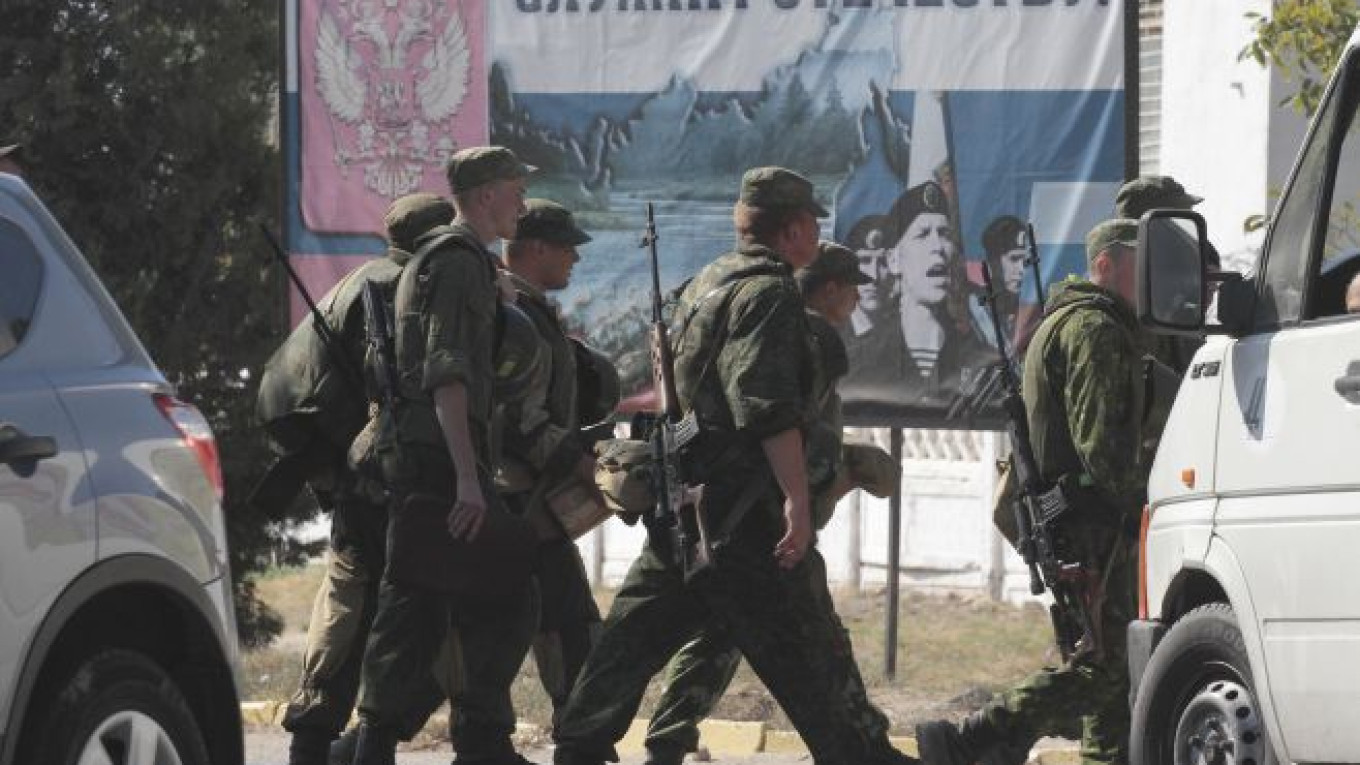Russian lawmakers have called for a new national holiday to honor the troops who seized Crimea from Ukraine, reflecting a wave of patriotic support for Moscow's military intervention in its former Soviet dominion.
The holiday would be on President Vladimir Putin's birthday, Oct. 7, its proponents said, and would celebrate the role of the so-called "polite people" — the troops who wrested the Black Sea peninsula away from Ukraine before Moscow annexed it in March.
"Polite people" or "polite green men" was the term coined, initially tongue-in-cheek, to describe the soldiers who entered Crimea with their identifying insignia removed.
Moscow initially denied the presence of Russian troops in Crimea and Putin only publicly admitted their deployment on Apr. 17, nearly a month after he signed legislation completing Crimea's annexation, a move that drew sanctions from the West.
"The term 'polite people' ... has become a new brand of the Russian army, a new image of a modern army," Viktor Vodolatsky, a parliamentary member of Putin's United Russia party, told a news conference on Wednesday announcing the proposed holiday.
"The 'polite people' brand became popular after Crimea and shows respect not only for special forces but for all armed forces who precisely, calmly, without bloodshed, assisted the residents of Crimea in returning to their historic homeland," he said.
Russian officials and most media use the term "reunification" rather than "annexation" in regard to Crimea, saying the move restored historic normality to an area with a large ethnic Russian population.
Putin — who denies Western accusations that he has sent troops to two rebel regions in eastern Ukraine — is enjoying soaring popularity ratings as Russian media, mostly under tight Kremlin control, have fanned patriotic fervor over events in Ukraine.
Unlike in Crimea, seized mostly without bloodshed, the conflict in Ukraine's Luhansk and Donetsk regions has killed more than 3,000 people since it started in April, according to the United Nations.
Growing evidence of presence of "polite people" there has already drawn comparisons to the role they previously played in Crimea.
A Message from The Moscow Times:
Dear readers,
We are facing unprecedented challenges. Russia's Prosecutor General's Office has designated The Moscow Times as an "undesirable" organization, criminalizing our work and putting our staff at risk of prosecution. This follows our earlier unjust labeling as a "foreign agent."
These actions are direct attempts to silence independent journalism in Russia. The authorities claim our work "discredits the decisions of the Russian leadership." We see things differently: we strive to provide accurate, unbiased reporting on Russia.
We, the journalists of The Moscow Times, refuse to be silenced. But to continue our work, we need your help.
Your support, no matter how small, makes a world of difference. If you can, please support us monthly starting from just $2. It's quick to set up, and every contribution makes a significant impact.
By supporting The Moscow Times, you're defending open, independent journalism in the face of repression. Thank you for standing with us.
Remind me later.


